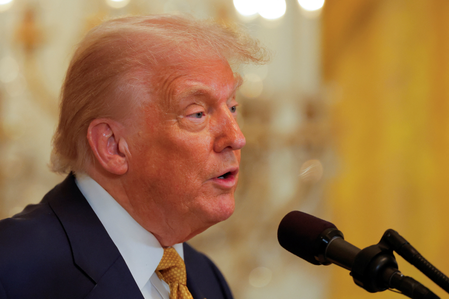Will Trump Deploy the National Guard to Memphis?

Published: 2025-09-13 03:26:58 | Category: Crime GNEWS Search
In a recent announcement, US President Donald Trump stated he would deploy the National Guard to Memphis, Tennessee, to address rising crime levels, claiming support from local officials. However, both the city's mayor and the county's mayor have publicly opposed this decision, arguing that militarising the community is not the solution. This situation highlights the complex dynamics between federal and local governance, particularly in areas with differing political leadership.
Last updated: 13 September 2023 (BST)
Key Takeaways
- President Trump announced the deployment of the National Guard to Memphis to combat crime.
- Memphis's Mayor Paul Young did not request this action and disagrees with it.
- Shelby County Mayor Lee Harris condemned the militarisation of communities.
- Tennessee Governor Bill Lee supports the deployment and is coordinating with the federal government.
- The announcement raises concerns about the relationship between federal authority and local governance.
The Context of Crime in Memphis
Memphis has faced significant challenges related to crime, particularly violent crime, in recent years. The city's demographic landscape is predominantly Black, and it has a history of socio-economic difficulties that contribute to crime rates. Officials have attempted various strategies to address these issues, yet the effectiveness of these measures has been debated.
As a Democratic stronghold, Memphis's leadership often contrasts with the Republican administration at the federal level, leading to tensions over how crime is addressed. Trump's recent statements suggest he views the deployment of troops as a necessary step to restore order, echoing a controversial approach he previously took in Washington.
Local Reactions to the Deployment
The response from local leaders has been largely negative. Mayor Paul Young expressed his discontent during a press conference, emphasising his intention to work collaboratively rather than resorting to military intervention. He stated, "I did not ask for the National Guard and I don't think it's the way to drive down crime."
Similarly, Shelby County Mayor Lee Harris voiced strong opposition, stating that the community does not welcome the militarisation of their streets. In his statement on social media, he described the presence of armed military personnel as an "occupation" and expressed concern over the use of armoured vehicles and semi-automatic weapons.
The Role of the Tennessee Governor
Tennessee Governor Bill Lee's support for the National Guard deployment adds another layer of complexity. While he has confirmed his communication with the Trump administration, his involvement raises questions about the balance of power between state and federal authorities. Lee stated, "I've been in close contact with the Administration throughout the week," indicating a willingness to collaborate on this initiative.
This coordination reflects a broader trend where state governors align with federal actions, particularly in matters of public safety. However, the differing perspectives of Memphis's local leaders highlight the potential for conflict between state policies and local needs.
What Happens Next?
The deployment of the National Guard in Memphis will likely unfold over the coming weeks, but its impact remains uncertain. The complexity of the situation raises several questions: Will this military presence effectively reduce crime? How will it affect community relations? And what long-term strategies will be implemented to address the root causes of crime?
As local officials continue to voice their concerns, the dialogue between the federal government and Memphis's leadership will be crucial in determining the future of public safety in the city. Observers will be watching closely to assess the outcomes of this controversial decision.
Potential Implications for Other Cities
Trump's comments about potentially deploying the National Guard to other cities like Chicago and Baltimore suggest a broader strategy that could have national implications. If successful, this approach may set a precedent for similar actions in other urban areas struggling with crime, particularly those governed by Democrats.
The implications of such a strategy extend beyond public safety; they touch on issues of governance, civil rights, and community trust. The militarisation of police forces has long been a contentious topic, with critics arguing that it exacerbates tensions between law enforcement and the communities they serve.
Conclusion
The decision to deploy the National Guard to Memphis is emblematic of the ongoing struggle to find effective solutions to urban crime. As local leaders express their concerns, the potential for conflict between federal and local governance remains evident. The outcome of this deployment will not only affect Memphis but could also shape how similar situations are handled across the United States.
In a country where crime rates and community relations are under constant scrutiny, the conversation surrounding the deployment of military forces to combat crime is more relevant than ever. How will cities balance the need for safety with the rights and wellbeing of their citizens? The coming weeks will be crucial in answering this question.
#NationalGuard #MemphisCrime #LocalGovernance
FAQs
Why did President Trump choose to deploy the National Guard in Memphis?
President Trump announced the deployment to combat rising crime levels in Memphis, which he described as "deeply troubled." He claimed to have support from local officials, although this has been disputed.
What is the reaction of Memphis's Mayor to the National Guard deployment?
Mayor Paul Young opposed the deployment, stating he did not request the National Guard and believes it is not an effective way to address crime in the city.
How does the Governor of Tennessee feel about the National Guard deployment?
Tennessee Governor Bill Lee supports the deployment and has been in close contact with the Trump administration to coordinate the mission details.
What are the concerns regarding militarising communities?
Local leaders, including Shelby County Mayor Lee Harris, have expressed concerns that militarising communities with armed personnel and equipment could escalate tensions and negatively impact community relations.
What could be the broader implications of this deployment for other cities?
If successful, the National Guard deployment in Memphis could set a precedent for similar actions in other urban areas facing crime, particularly those led by Democrats, potentially affecting national policies on public safety.



